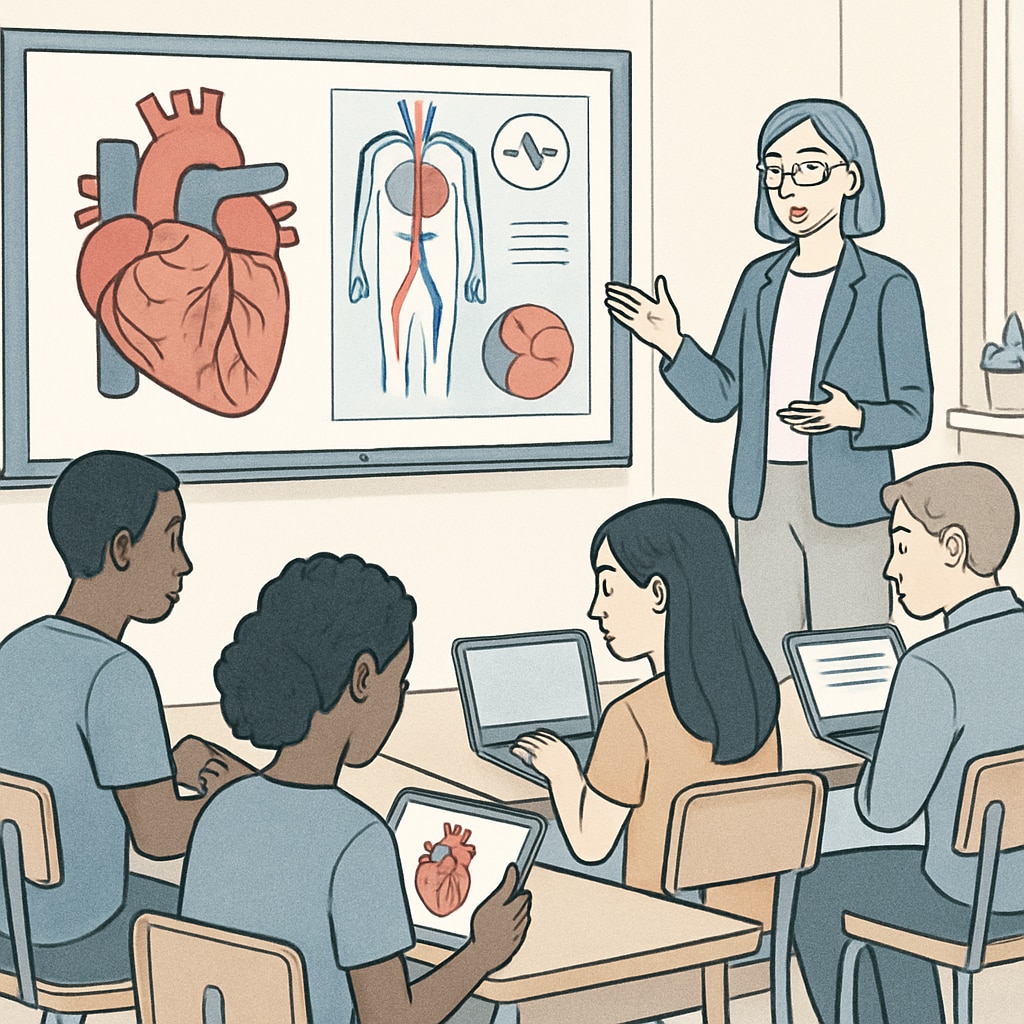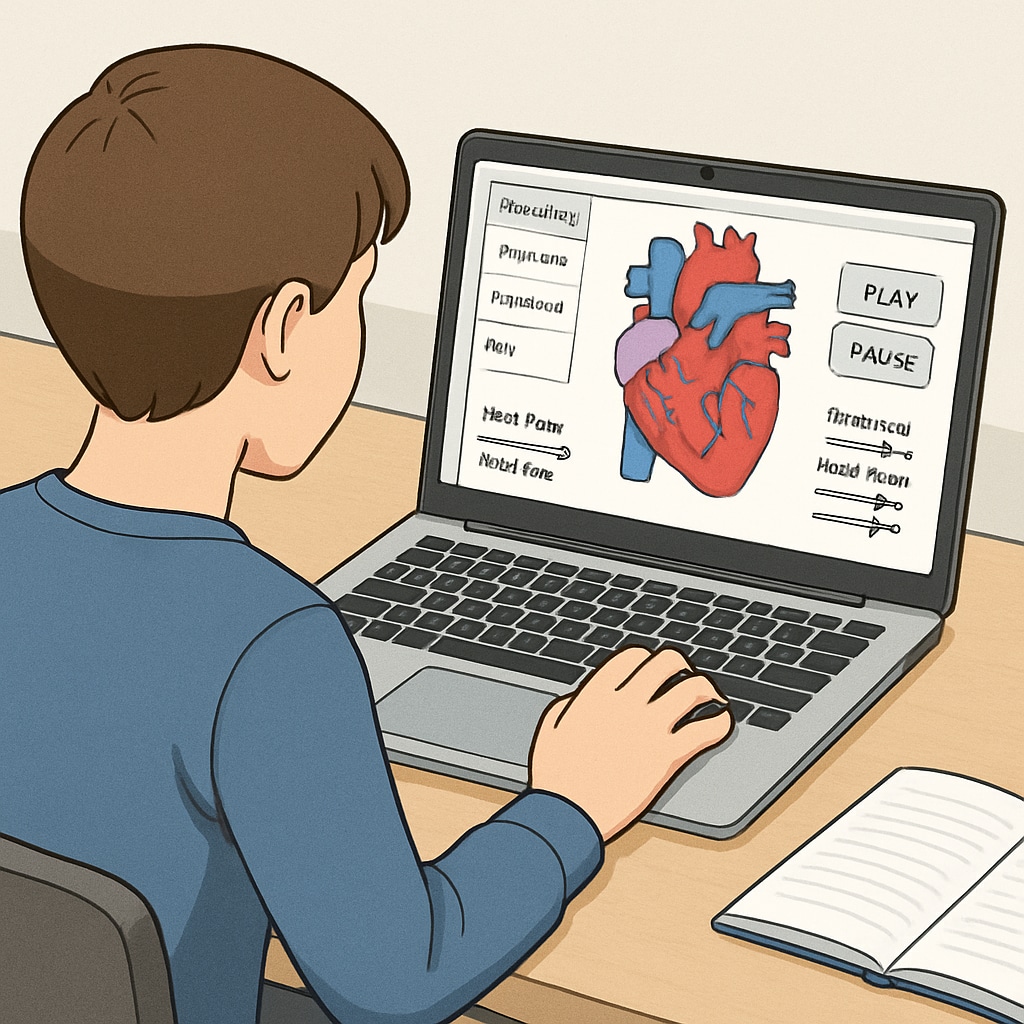In a world increasingly focused on health and well-being, the inclusion of medical knowledge in K12 education is becoming essential. Empowering students and non-medical professionals with basic cardiology knowledge through online courses can enhance their health literacy and scientific thinking. This innovative approach can prepare the younger generation for a healthier future while providing them with tools to understand critical medical topics such as heart health.
Why Non-Medical Professionals and Students Need Medical Knowledge
Medical knowledge is no longer reserved for healthcare professionals. In today’s interconnected world, understanding basic concepts like heart function, common illnesses, and preventive care is important for everyone. For instance, cardiology—the study of the heart—is a critical area where awareness can have life-saving implications. According to the World Health Organization, cardiovascular diseases are the leading cause of death globally. Providing young students with foundational knowledge about heart health can help them make informed decisions about diet, exercise, and lifestyle.
In addition, introducing medical topics in K12 curricula fosters scientific curiosity and critical thinking. Students who are exposed to these concepts early can develop a better understanding of their own health and even inspire career interests in healthcare. Online courses tailored for non-medical audiences make it easier than ever to democratize this knowledge.

Building a Cross-Disciplinary Curriculum for K12 Students
To integrate medical knowledge into K12 education, a “cross-disciplinary” curriculum is key. This approach can combine elements of biology, physical education, and health sciences into a cohesive program. For example:
- Interactive Modules: Online courses with interactive simulations can help students visualize how the heart pumps blood or how lifestyle choices impact cardiovascular health.
- Project-Based Learning: Students can engage in projects like tracking their daily physical activity and analyzing how it impacts their heart rate.
- Guest Lectures: Inviting healthcare professionals to speak about real-world applications of medical knowledge can inspire students and make lessons relatable.
These methods ensure that students are not just passively receiving information but actively engaging with the material. Platforms like Khan Academy offer excellent resources that schools can adapt for their needs.

Leveraging Online Courses for Accessibility and Scalability
Online courses play a pivotal role in making medical education accessible to non-medical professionals and students. These courses can be tailored to different age groups and educational levels, ensuring that the content is appropriate and engaging. Platforms offering flexible learning schedules also allow students to learn at their own pace, which is particularly useful for complex subjects like cardiology.
Moreover, online courses can bridge the gap between developed and underserved regions. Schools in rural or low-income areas can use free or low-cost digital resources to introduce medical topics without requiring extensive infrastructure. For example, virtual labs are an excellent solution for schools that lack physical science labs.
As a result, the benefits of online medical education extend beyond the classroom, equipping students with skills they can apply in real-life scenarios, such as recognizing early symptoms of cardiovascular issues or understanding the importance of regular check-ups.
The Future of Health Literacy in K12 Education
As we look to the future, incorporating medical knowledge into K12 education represents an opportunity to create a generation of health-literate citizens. These individuals will not only be equipped to make better personal health decisions but also contribute to a society that values preventive care and scientific inquiry.
By integrating topics like cardiology into school programs via online courses, we can ensure that students are prepared to meet the health challenges of the 21st century. This cross-disciplinary approach is not just an investment in education but a step toward building a healthier and more informed society.
In conclusion: The inclusion of medical knowledge, such as cardiology, in K12 education through accessible online courses empowers both students and non-medical professionals. This innovative approach nurtures health literacy and scientific thinking, laying the groundwork for a well-rounded and health-conscious generation.


